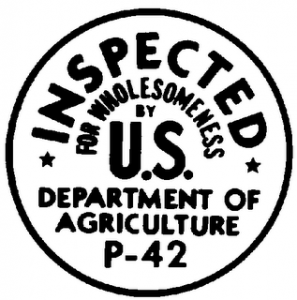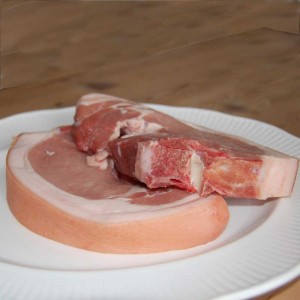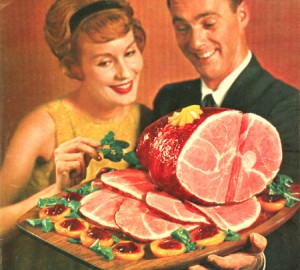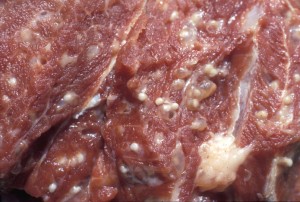Give a Pig a Pancake
Confession Time
 I have a confession to make. I love smoking. That first morning cigarette or that cigarette you savor with a cup of rich coffee, or that quickie while on the phone, or that nice relaxing smoke while driving on the interstate highway, or that first smoke right after work. That cigarette you share with your spouse after a satisfying meal or some other satisfying activity. And that last cigarette of the day … I love them all.
I have a confession to make. I love smoking. That first morning cigarette or that cigarette you savor with a cup of rich coffee, or that quickie while on the phone, or that nice relaxing smoke while driving on the interstate highway, or that first smoke right after work. That cigarette you share with your spouse after a satisfying meal or some other satisfying activity. And that last cigarette of the day … I love them all.
I just don’t smoke anymore. Haven’t smoked in years. Don’t plan to start back.
I didn’t just say that you shouldn’t smoke. I am saying that I no longer smoke. I am saying that I have my reasons. I am saying that it is not a decision I came to lightly or without any regrets.
Because of educating myself, I naturally realize how much harm is being done when someone smokes. Having the benefit of that knowledge is very different than casting judgements on the choice.
Not long ago, I chuckled in agreement when noted author and food critic, Jeffrey Steingarten, said, “The only thing better than bacon is chocolate.”
I have a further confession to make. I love bacon. And pork chops. And ham sandwiches. And pork tenderloin! Oh man, pork tenderloin! And barbecued pork ribs, and ham, and pulled-pork sandwiches, and chitterlings (chitlin) gravy. And greens cooked with salt pork, and beans baked with fat back, and pork tamales, and breakfast sausage, and pepperoni pizza, and pigs in a blanket. It’s true. I*heart*pork.
I just don’t eat pork anymore.
I’m not saying you shouldn’t eat pork. I am saying that I don’t eat pork. I’m not saying that I don’t understand why people like eating pig. I am saying I love the flavor, fully understand, the appeal, have practical experience with it myself, but I just don’t eat it. I am saying that I have my reasons. I am saying that it is not a decision I came to lightly or without any regrets.
One of the tenets that we live by is best said in Romans 14:2-17. What you eat, and what we eat, what we feed our families, is a choice. When we are criticized for our choice to follow God’s dietary laws with respect to eating clean real food, it always strikes us as kind of strange. There is hardly a more personal choice in the world than what one chooses to consume.
Outside of the odd critic, we have received a lot of questions about why we choose clean real food, and especially with respect to pork and bottom feeders, so I thought those two needed some specific explanation. This post will focus on pork.
Making the Grade
 Did you know that the USDA meat grading is strictly voluntary and that the plants have to pay for grading? USDA grades for beef include Prime, Choice, Select, Standard, Commercial, Utility, Cutter, and Canner while for Chicken, Turkey, Duck, and other inspected game birds can be graded as A through F.
Did you know that the USDA meat grading is strictly voluntary and that the plants have to pay for grading? USDA grades for beef include Prime, Choice, Select, Standard, Commercial, Utility, Cutter, and Canner while for Chicken, Turkey, Duck, and other inspected game birds can be graded as A through F.
You are only ever likely to see Prime, Choice, Select, or Standard beef and you are only ever likely to see grade A fowl in the supermarket. Still, have you ever wondered why you just never see USDA graded pork? Like any kind of USDA grade for pork?
The USDA does not grade pork the way they do beef or fowl. They have exactly two grades for pork meat, “Acceptable” and “Utility,” and those grades are entirely accurate.
The USDA cannot give pork an A or B grade like with fowl, nor can they grade pork Prime, Choice, Select, or even Standard — nothing above “Acceptable” — like they can with beef. The reason is because swine flesh is loaded with bacteria, parasites, and toxins. When a pig is butchered, worms and insects take to its flesh sooner and faster than to other animal’s flesh. From the time of slaughter, exactly nothing is done to sterilize or purify pork meat in any way.
While they won’t give pigs standard grades, the USDA does provide pamphlets that advise consumers to fully cook all pork products to avoid getting sick or hosting a parasite.
On average, supermarket pork has over a dozen parasites. A high school kid posted a video where he faked a few pork chops taking the “Pepsi Challenge” that gives birth to parasitic worms. While this is funny, and staged the fact is that if you marinate raw pork in a slightly acidic sugary liquid, you can often culture live parasites.
There is no safe temperature at which pork can be cooked to ensure that all these parasites, their cysts, and all the eggs will be killed off. In addition, microwave ovens heat unevenly, practically ensuring that some of those varmints will survive the heating process.
Is Pork Really Unclean?
There is a program called PQA plus or Pork Quality Assurance. It’s a program that modern American pig producers must follow to be able to bring large amounts of swine to market. The program instructs farmers on such things as how to vaccinate their pigs as well as using stalls with slatted floors so that the pig droppings fall through. There are guidelines for birthing, especially if the sow delivers a large litter. There are guidelines for segregating any sick or injured animals. In other words, most of the guidelines of the PQA program are there in an attempt to head-off the very nature of pigs.
Pigs are scavengers, basically land-borne bottom feeders. They are notorious for eating anything, including rats, maggots, dead or decaying animal flesh, their own cancerous growths or those on other animals, garbage, and excrement. A pig will eat sick animals, infected animals, and dead animals. Many chicken farmers keep half a dozen pigs on hand to toss in dead chickens so they need not bury them.
Remember how feeding cow meat to living cattle brought us Mad Cow disease? Pigs are cannibalistic. They eat other pigs, including their own piglets — those that die from disease or starvation, or living piglets who are runts in large litters which explains the PQA birthing guidelines.
Pigs have one the quickest and poorest digestive systems of any animal. Cows, for example, have a complex digestive system with four stomachs and they repeatedly masticate ruminants (chew cud). It thus takes over 24 hours for bovines to digest their all vegetarian diet causing a cow’s food to be largely purified of toxins. By contrast, a swine’s single stomach takes only about 4 hours to digest its largely toxic diet. Since it processes everything so quickly, those toxins are not removed and are mainly stored in the pig’s flesh and fat.
 Pig meat has twice as much fat as beef. While a 3 oz T bone steak contains 8.5 grams of fat, in comparison a 3 oz pork chop contains 18 grams of fat. While a 3 oz beef rib has 11.1 grams of fat, in comparison a 3 oz pork spare rib has 23.2 grams of fat. In addition to having much more fat, the fat is much more saturated with toxins.
Pig meat has twice as much fat as beef. While a 3 oz T bone steak contains 8.5 grams of fat, in comparison a 3 oz pork chop contains 18 grams of fat. While a 3 oz beef rib has 11.1 grams of fat, in comparison a 3 oz pork spare rib has 23.2 grams of fat. In addition to having much more fat, the fat is much more saturated with toxins.
Perspiration is one means by which toxins are removed from the body. Unlike other mammals, a pig does not perspire. Toxins remain within its body, in the meat and the fat. The pig was designed with a natural sewer line, or canal, running down each leg with an outlet in the bottom of the split foot. Out of this aperture oozes pus and filth its body cannot pass into its system fast enough. When farmers squeeze the pig’s foot to check the color of this pus, they call it “pig gravy.” Naturally, some of this toxic pus is in the leg meat of the pig.
Another means by which toxins are removed via urine. In the case of pigs, noting the uric acid content in the blood, the pig’s biochemistry excretes only 2 percent of its total uric acid content, while the remaining 98 percent remains as an integral part of the body and blood of the animal.
Not only do pigs store poisons, but they tolerate them. Midwestern farmers will very often pen up pigs near any rattlesnake nests they discover on their property, because the pigs will eat the snakes, and if bitten the pigs are not harmed by the rattlesnake venom. Pigs are so tolerant of poisons that they can withstand massive doses of industrial grade strychnine or arsenic, for example, and show no ill effects. Those poisons remain largely in the meat and fat of the pork.
Bottom line — pork can be as much as 30 times more toxic than either beef or venison.
What Did You Just Eat?
You are what you eat holds true, as well as you are what your food ate. When it comes to what farm raised pigs eat, there are basically two schools of thought. One school feeds their pigs a specially formulated pig meal, and the other feeds their pigs garbage.
 Yes, pigs are fed — and eat — straight garbage. The “grain feeders” call them garbage guts. When the Egyptian government decided to kill all of Cairo’s pigs in the spring of 2009 in what they saw as a preemptive strike against influenza, they forgot that pigs ate 1,500 tons of garbage every week. That nation’s capital quickly started swimming in their own garbage as a result. The city of Philadelphia has saved more than $30 million dollars a year since 1988 feeding its garbage to contracted pig farms in central Pennsylvania and northern New Jersey. The garbage fed pigs are sold directly to slaughterhouses.
Yes, pigs are fed — and eat — straight garbage. The “grain feeders” call them garbage guts. When the Egyptian government decided to kill all of Cairo’s pigs in the spring of 2009 in what they saw as a preemptive strike against influenza, they forgot that pigs ate 1,500 tons of garbage every week. That nation’s capital quickly started swimming in their own garbage as a result. The city of Philadelphia has saved more than $30 million dollars a year since 1988 feeding its garbage to contracted pig farms in central Pennsylvania and northern New Jersey. The garbage fed pigs are sold directly to slaughterhouses.
Most pigs which are allegedly “grain” fed, are actually fed plentiful amounts of specially formulated pig feed meal which is sometimes made from things like genetically modified corn or Grade C and below “feed” corn. In recent days, that kind of corn goes mainly into ethanol research and other energy related commercial applications.
So, modern pig feed meal is made primarily from soy solids leftover from the industrial processing of soybeans into soybean oil and other marketable soy products. That’s right. The best cared for pigs in America are getting mega-doses of unfermented soy. Unfermented soy has been shown to be a hormone emulator and a hormone disruptor which mimics oestrogen.
USDA claims that no hormones are used in the production of pigs. This is not strictly true.
Mega-doses of soy cause off the chart estrogen levels in the pigs, whose biology is very similar to that of human beings. Understand, this is not like a hormone shot administered to a steer which is completely gone from the animal inside of 30 days. This is what the pigs eat every single day and what alters and directly affects their own metabolic and hormonal functions. Eating even graded “Acceptable” grain fed pork can result in elevated oestrogen levels and lowered testosterone in human beings, which is directly harmful to women of any age — but especially if pregnant — and can be particularly harmful to boys and young men. The increased consumption of unfermented soy from a variety of vectors by European and American men could be a contributing factor to the more than 70% drop in testosterone levels since 1945.
Swine ‘Flu with Your Eggs?
Everyone knows to “thoroughly cook” pork to kill all of the parasites in the meat. Personally, the idea of intentionally eating dead parasites is none too appetizing either. Pig flesh can contain parasites like Schistosoma, Trichenella, wire worms, fluke worms, and tapeworms such as Taenia solium. Humans can easily contract toxoplasmosis, eaeniasis, cysticercosis, and thrichinellosis. The trichinae worm is microscopically small, and once ingested can lodge itself in human intestines, muscles, spinal cord, or the even the brain. The symptoms of thrichinellosis are often masked, and often presents in such a way that medical professionals mistake the condition for other diseases, such as typhoid, arthritis, rheumatism, gastritis, MS, meningitis, gall stones, or acute alcoholism. Is it fair to ask if you have ever experienced unexplained muscle pain, fever, headache, or swelling?
 Every single cell in a pig contains a retrovirus that makes them walking test-tubes ready and willing to incubate brand new viral strains. In high-tech laboratories where microbiological research and tests are conducted that place emphasis on diagnosing and treating cancer in humans, the carcinogenic vectors that cause cancer can actually be isolated from a patient’s blood and cultured to assist in treatment efforts. Oncological researchers in those labs know that pig fat is the best medium on earth to grow cancer cells in a petri dish.
Every single cell in a pig contains a retrovirus that makes them walking test-tubes ready and willing to incubate brand new viral strains. In high-tech laboratories where microbiological research and tests are conducted that place emphasis on diagnosing and treating cancer in humans, the carcinogenic vectors that cause cancer can actually be isolated from a patient’s blood and cultured to assist in treatment efforts. Oncological researchers in those labs know that pig fat is the best medium on earth to grow cancer cells in a petri dish.
The University of Geissen’s Institute for Virology in Germany presented in a study of worldwide influenza epidemics that pigs are the one animal that can serve as a mixing vessel for new influenza viruses that may seriously threaten world health.
If a pig is exposed to a human’s virus and then a bird’s virus, the pig’s cells mix those two viruses–thus developing a brand new DNA virus that is often extremely harmful or even lethal to birds — or humans — or both. In light of recent pandemic outbreaks, virologists like Chriastoph Scholtissek, M.D., have concluded that if we do not find a way to separate humans from pigs, the entire earth’s population may be at risk.
Why do you suppose that many modern pig farms require their workers to wear protective clothing and impermeable boots and gloves, eye-protection, and breathing masks when working with the animals? In addition, most also require that their workers shower at the ends of their shifts before returning to their homes
Bring no Unclean Offering…
Although today many Chinese are avid pork eaters, traditionally, Confucianists also did not eat pork. The 3,000 year old Confucian Book of Rites says, “A gentleman does not eat the flesh of pigs and dogs.” Buddhists, Jains, and Hindus usually avoid eating any kind of meat, which would include pork.
Faithful Muslims, Jews, and Christians are forbidden to eat the flesh of swine. For Muslims, the prohibition is detailed the Qur’an in verses 2:173, 5:3, 6:145, and 16:115 with verses like, “He has only forbidden you dead meat, and blood, and the flesh of swine…”
Jews who keep kosher do not consume pork of any kind, even to the point of avoiding pills or capsules manufactured with pig cartilage as the gelatin base. They are bound by the Torah, or the Laws of Moses, as detailed in the first five books of the Bible.
The prohibition against eating pork is well documented in the first five books (Leviticus 11:4-8; 26-28; 7:23 and Deuteronomy 14:8). It comes down to a fairly easy to understand and very simple instruction that God stated as “a perpetual statute for your generations (Leviticus 3:17)” which is this: Don’t eat pork.
The prophet Isaiah includes the eating of pork among the many disobedient acts of stubborn people who, in addition to sexual abominations, idolatry, and conjuring spirits of the dead, “continually provoke me to my very face… who eat the flesh of pigs, and whose pots hold the broth of unclean meat.” (Isaiah 65:3-4)
In the last book of Isaiah, the prophet tells of the end of days and he is talking about how the Lord will come and render His final judgement. It reads, “Those who sanctify themselves and purify themselves, to go to the gardens After an idol in the midst,” So he is talking about people who trust in their own wisdom and who are not sanctified by God. Look how the verse ends;. “‘Eating swine’s flesh and the abomination and the mouse, Shall be consumed together,’ says the Lord. (Isaiah 66:15-17)
It can certainly be said that the Jewish people have applied a large amount of legalism to the practice of the Law, taking steps far beyond the literal or intended meanings. Even so, many Christians believe the dietary laws as they were literally said or were intended by the Lord somehow only apply to Jews and somehow do not apply to Christians.
During the Sermon on the Mount, Jesus said, “Think not that I am come to destroy the Law, or the Prophets: I am not come to destroy, but to fulfill” (Matthew 5:17) Personally, I believe it is important to remember that Christ Jesus was born under the Law of Moses (Galatians 4:4) and kept the law every single day that He lived on this earth. This means He never ate pig, nor ever even touched the carcass of a pig.
 In fact, Christ never says anything particularly complimentary of pigs, nor does he do pigs any favors. The only documented occurrence of Christ interacting with swine, He used a large herd of them as a dumping ground for demons by first casting the demons out of a tormented man and then destroying every last one of the pigs. (Matthew 8:28-32)
In fact, Christ never says anything particularly complimentary of pigs, nor does he do pigs any favors. The only documented occurrence of Christ interacting with swine, He used a large herd of them as a dumping ground for demons by first casting the demons out of a tormented man and then destroying every last one of the pigs. (Matthew 8:28-32)
In speaking of pigs, Christ compares swine to hypocrites and cautions the faithful not to offer pearls to the swine or else those treasures will be trampled and then the swine would turn around and devour the believers. (Matthew 7:6)
In the parable of the Prodigal Son, Christ related how the errant son descended through a life of shameful debauchery and excess into shameful poverty and desperation. The “final straw” falls, though, when the prodigal finds himself eating slop next to pigs. (Luke 15:16) It was that event that was the “rock-bottom” life low that caused the prodigal to return home to his father.
Some Christians say that after a vision by Peter, God cleansed all animals and made them fit and lawful for human consumption. If all animals are cleansed by Peter’s vision, this includes pigs as well as dogs. Somehow, you don’t see Christians getting all excited about a dog-meat sandwich like they do over barbecued pork. In speaking of both dogs and pigs, Peter said this:
For if, after they have escaped the pollutions of the world through the knowledge of the Lord and Savior Jesus Christ, they are again entangled in them and overcome, the latter end is worse for them than the beginning. For it would have been better for them not to have known the way of righteousness, than having known it, to turn from the holy commandment delivered to them. But it has happened to them according to the true proverb: “A dog returns to his own vomit,” and, “a sow, having washed, to her wallowing in the mire.” 2 Peter 2:20-22
Some Christians say that the Apostle Paul rescinded the law forbidding pork to humans, in order to appease the Romans, who enjoyed the taste of pig-meat. That takes us back to the book of Romans 14:2-17 which centers on a debate by early believers about whether a clean animal became unclean if that type of animal had ever been put on an alter as an offering to a false god or an idol. The debate was not about whether unclean animals, like pigs, were now deemed clean. It was about whether clean animals, such as lambs, had been made unclean by virtue of pagan practices.
As Christians, we are commanded to set ourselves apart. People say, ‘Well God doesn’t care.’ Well I beg to respectfully disagree. I think that the Lord God does care, and He makes it very clear in His holy word over and over and over again.
Obviously, eating clean food and abstaining from unclean food is not the key to our salvation. But it is a deliberate act of worship as well as a demonstration of an informed choice that defies the ignorance of unbelievers. Our bodies are the Temple of the Holy Spirit; and we’re not to bring unclean animals into that Temple as an offering.
Hallee
I’m so grateful for your visit, today.
You would bless me if you added me to your ![]() feed reader or subscribed
feed reader or subscribed  via email.
via email.
You can also become a fan on ![]() Facebook or follow me on
Facebook or follow me on ![]() Twitter. I would love to see more of you!
Twitter. I would love to see more of you!
This post was linked to:



We have a Torah Observant ministry and have kept Biblical Kosher for almost 30 years. Enjoyed the article. God’s Key to Health and Happiness by Elmer Josephson speaks to this very subject as well. Only thing I would say is that one should not even consider Swine or Bottom Feeders as Unclean ‘FOOD’. They are not even FOOD. They were never meant to be food. They are unclean animals.